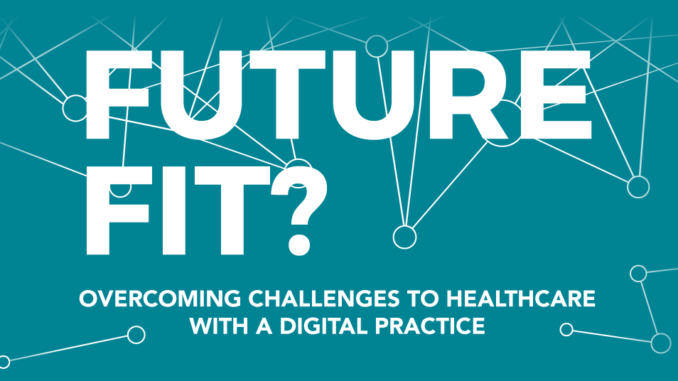
General practice is under pressure – and so, too, are those who work within it. Technology is being championed as a solution as the NHS moves towards a digital-first system; however, there are challenges which practices must overcome in order to realise a digitally-driven health service which serves the needs of the practice staff and the patient population efficiently
General practice is facing two major challenges: demand and recruitment. There is the well-documented aging population and then there is the fact that the population is exploding. In addition, there’s an influx of younger patients with higher levels of ‘health-seeking’ behaviour which is further driving demand – and it is unrelenting.
As patient lists and patient demands continue to increase, practice workforces are reducing – GPs are retiring or moving elsewhere – and resources are diminishing; yet, the purpose of general practice remains steadfast – to deliver the best possible healthcare to every patient, and to support and improve the health of the population.
These factors have combined to create what Professor Helen Stokes-Lampard, chair of the RCGP, has called “intense frustration among professionals,” which leads, of course, to stress and burnout. Innovative solutions are being sought to alleviate the situation – such as new models of care and ways of working – all underpinned by evolving health technology.
Digital-first systems
There is no doubt the future of the NHS will be technology-led – the digital transformation is already well underway. Health secretary Matt Hancock has, in his short time as secretary of state for health and social care, committed to a £487m technology investment in the NHS. While this may seem like a drop in the ocean, it reflects a wider commitment to an NHS-wide, digital-first system.
Powerful Patients, Paperless Systems; how technology can renew the NHS sets out the government’s aim to make the NHS paperless and wholly digital – calling for pagers, fax machines and paper records to be replaced by integrated digital systems. The vision is to provide patients and healthcare organisations with the latest medical data that can be easily stored and shared between GP surgeries, hospitals and other care providers.
In a sector managing with stretched resources, it’s critical that time is taken back and it’s clear such efficiencies can only be realised through digital transformation – or, more specifically, the application of good technology. As outlined in the paper Powerful Patients, Paperless Systems, an integrated, fully-digital healthcare system can ease the pressures currently faced by eradicating cumbersome paper, streamlining processes and even reducing missed appointments.
Sizing-up technology
Will general practice be paperless by 2020? The consensus is that it’s unlikely. The focus, now, needs to be on making paper and digital work seamlessly together, while considering the changes that lie ahead. However, realising this level of digital transformation is a delicate balancing act; in many practices the technology is archaic and not fit-for-purpose. There is a clear need for investment in technology and infrastructure at practice level – so, what are the obstacles to this?
In an ideal world digital-first practices would be immediately embraced but, in the real world, resource limitations, ingrained working practices and legacy systems make a simple switch seem anything from unlikely to impossible.
Time for transformation
Here at Practice Business HQ, we want to learn what the real pinch points to change at practice level are – if the sector can understand these, it can find solutions to overcome them. So, in conjunction with our partner, Brother UK, we are undertaking research into digital transformation in general practice – the findings of which will be published in a white paper and shared with the sector.
Brother UK has provided innovative technology solutions for healthcare for more than 25 years and is a key stakeholder in the primary care sector. They share our passion for supporting the sector with knowledge and insights which will improve and develop solutions for a fast-changing sector.
The objective is to establish the challenges and obstacles faced by practices when it comes to implementing digital-first systems and to better understand how practices can improve efficiency, save time and reduce workload through technology.
Your insights and experiences are essential to this so we’re very keen to have your input via our short, online survey (it will take no more than a few minutes!) to help us with our research. We know how busy you are, so as a thank you for sparing a few minutes of your day, every respondent will be entered into a drawer to win an iPad mini 4!
In addition, if you have a specific technology experience – positive, or otherwise – that you would like to share, we’d love to hear from you. Please get in touch via email HERE.
Don’t forget to follow us on Twitter, or connect with us on LinkedIn!



Be the first to comment